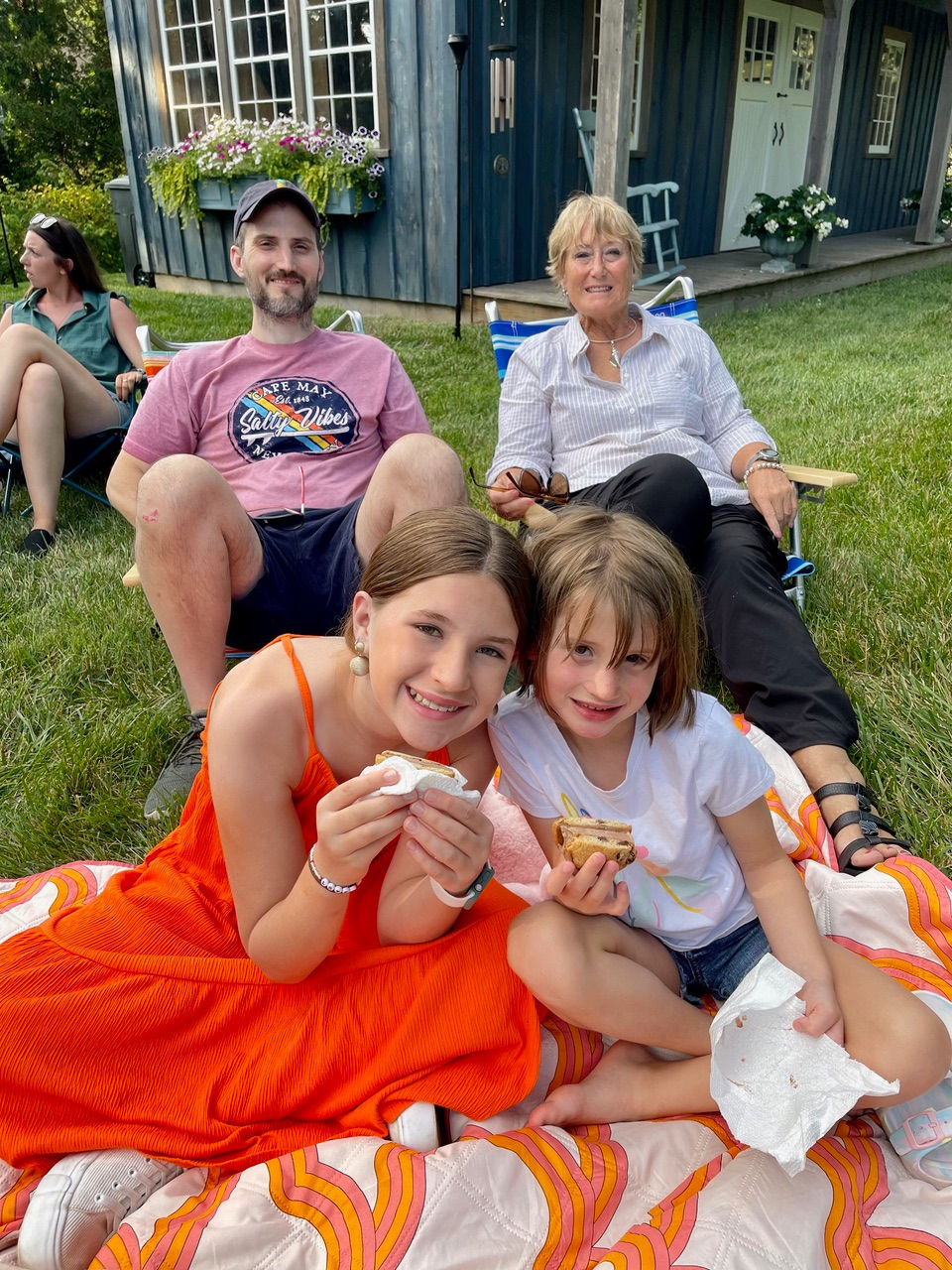A Stroke of Luck
- Katherine Dudley Hoehn
- Jul 9, 2025
- 5 min read
Updated: Jul 10, 2025

Yes, I had a stroke. Some called me lucky; I thanked God for sparing me and giving me a chance to warn you. It was an unforseen and unwelcomed addition to what started out to be a fun 70th year adventure. A stroke is definitely bad but it could have been so much worse ... and I learned a lot in the process.
Many may not recognize the symptoms of a stroke, or might think, like I did, “that would never happen to me.” If that sounds like you, please check the warning signs and risk factors here. Knowing them – and following up with your physician - might save your life.
A stroke happens when blood flow to an area in the brain is blocked or a blood vessel in the brain bursts. That results in brain cells, which receive oxygen from blood, being deprived … causing them to die (of a sort of starvation).
According to the Centers for Disease Control, heart disease is the leading cause of death for women in the United States and more than 44% of us are living with some form of heart disease. In years past, women have been underrepresented in studies about stroke, but that is changing. Some good news? Most strokes are preventable.
For years, my cholesterol has been somewhat elevated. I was opposed to taking medicine to lower it but have had coronary artery calcium scans (CAC) that measure calcium deposits to help assess my risk of heart disease. My score has always been zero (perfect). But … calcium scores and cholesterol aren’t the only risk factors.
Combine my higher than normal LDL cholesterol with recently more sedentary behavior (writing a book plus 8 months of reduced walking due to knee surgery), and stress … I was a powder keg waiting to blow.
I had a mild ischemic attack (a TIA) that my cardiologist described as a “heart attack in the brain.” I lost control of the muscles in my hand and fingers and dropped my mobile phone from my left hand in the middle of a conversation. It lasted no more than 30 seconds. At first, I attributed it to my hand being “asleep.” It wasn’t.
When one side of the brain is affected, it usually manifests itself in symptoms in the other side of the body. The right side of my brain was where a tiny amount of tissue created a backup in the blood vessel, causing a temporary reduction in blood flow. We’ll never know what really caused it, but we know I have several risk factors.
The personnel at Baptist Medical Center Nassau admonished me for waiting more than three hours to mosey into the emergency room (I first walked and fed the dog, then called my friend for a ride).
Don’t do what I did. If you are experiencing one or more of the warning signs of a stroke (see below), call 911. Brain cells die quickly and minutes count. Emergency Medical personnel can save your life with early intervention and a fast ride to the hospital. Do not put a friend or family member in a position they are unprepared for.
Women experience somewhat different stroke symptoms than men and have additional risk factors that men don’t have (see list below). We all tend to minimize things when we don’t want to disrupt our lives, such as when I tried to convince myself my hand was asleep. In addition to the weakness in my hand, I had a strong headache, and I found it hard to pay attention to conversation. Even with three major warning signs of a stroke (see list below) I still chose to walk the dog.

MAJOR WARNING SIGNS OF A STROKE (Centers for Disease Control)
Sudden numbness or weakness in the face, arm, or leg, especially on one side of the body
Sudden confusion, trouble speaking, or difficulty understanding speech
Sudden trouble seeing in one or both eyes
Sudden trouble walking, dizziness, or loss of balance
Sudden severe headache with no known cause
RISK FACTORS FOR A STROKE (Centers for Disease Control)
High blood pressure
High LDL cholesterol
Smoking
Diabetes
Excessive weight
Unhealthy diet
Physical inactivity
Overconsumption of alcohol
Stress and depression
Additional risk factors for women:
o First period before age 11
o Early menopause
o Polycystic ovary syndrome
o Diabetes during pregnancy
o Preterm delivery
o Delivery of a low birth weight or high birth weight infant
o Hypertensive disorders related to pregnancy
STROKE PREVENTION (“Life’s Essential 8” from the American Heart Association)
Refrain from smoking
Maintain a healthy weight
Stay physically active
Eat a healthy diet
Get enough sleep
Maintain normal levels of
Blood pressure
Glucose
Cholesterol

In the emergency room, you are seen quickly when a stroke is suspected! They ask so many questions and you repeat the answers ad nauseum. I stayed overnight to finish a round of tests and visits with a neurologist, cardiologist, physical therapist, occupational therapist, and the very pleasant hospitalist who explained it all.
Although I’m back to normal, with no residual effects, there is still monitoring and keeping my cholesterol level down because it should reduce my chance of having another stroke. My cardiologist, Dr. Russell Stapleton, has a pretty simple mantra that applies to everyone, “Keep your eyes on ABCT.” (A=A1C (blood sugar), B=Blood Pressure, C=Cholesterol, and T=Tobacco (if you smoke, quit)).
I’ve had to face the reality of a serious, life-altering incident. Now, the most important thing is to be smart about how I care for my body, educate myself, and live life to its fullest.




There is still lots of life to live. Less than two months after the stroke, I spent three weeks traveling in Spain with no worries and there are lots more places I will travel and adventures to undertake with my family.
Please, if you are experiencing any of the symptoms, or feel you are at risk, make an appointment with your primary care physician or call 911 if you are in distress. Waiting can be a mistake.
Thank you to my cardiologist, Dr. Russell Stapleton, Baptist Heart Specialists, Fernandina Beach, for his consult on this article. I'm the patient who pushes back and questions everything and greatly appreciate his patience and good counsel.
------
This blog was originally published in the Fernandina Beach News Leader on July 9, 2025













Hi KDH! Sorry you had to suffer a mild stroke, but happy you are okay. Thank you for writing such an excellent article about the warning signs and sharing your personal experience. I thoroughly enjoyed all the photos you included.
I am so sorry you had to go through that. Andy had one, but the cause was congestive heart failure so TIA's have to be taken seriously. We are glad you are doing well and facing life with courage and gusto!! Thank you for this excellent article.
Blessings,
Shelley
Great piece, Katherine, I thank you for clearly explaining such important information to all of us. I'm happy that you are doing well! Ramona
Thank you for the excellent article, from a nurse who has spent many years on the front lines of stroke prevention and treatment. "Time is brain," and a quick response starting with 911 can save your brain and life. So happy to see you thriving with family and wonderful travels now!
Thanks, Kat! Lots of factual and good info here!!